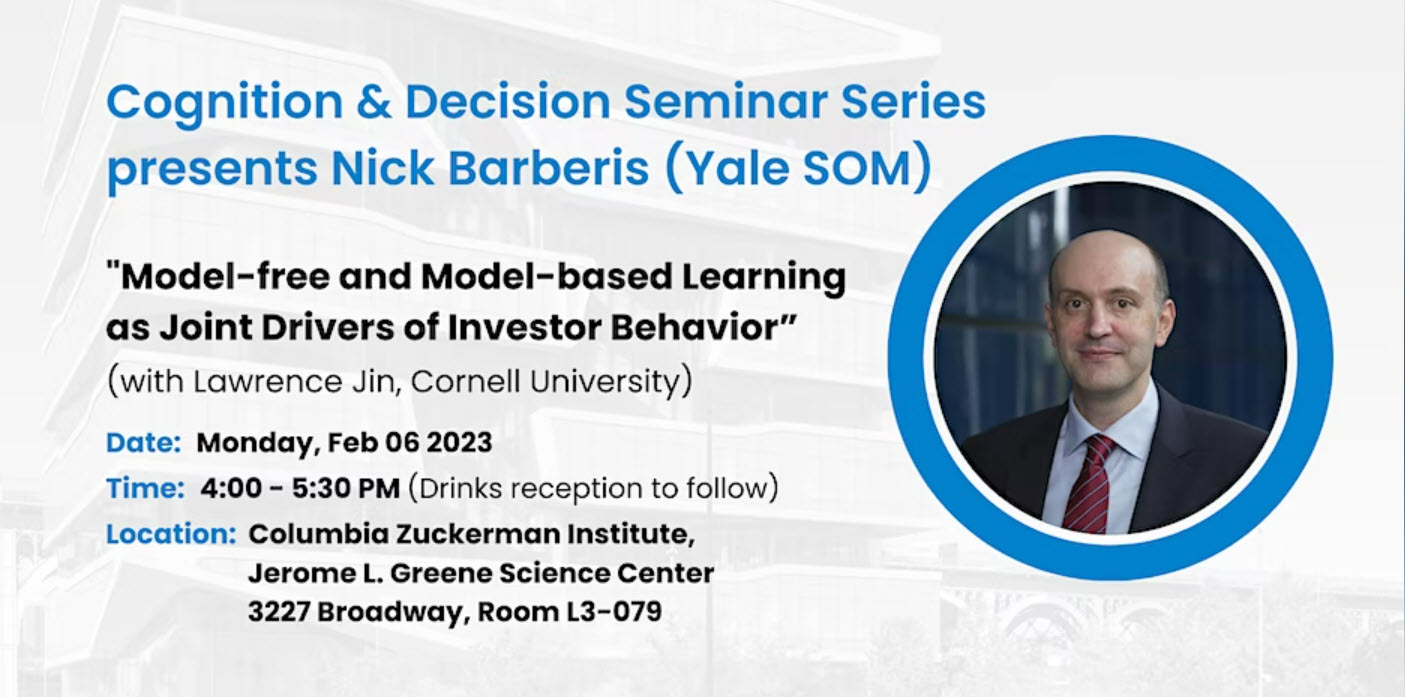
- This event has passed.
Model-free and Model-based Learning as Joint Drivers of Investor Behavior” (with Lawrence Jin, Cornell University)
Monday, February 6, 2023, 4:00 pm - 5:30 pm
Event Navigation

In the past decade, researchers in psychology and neuroscience studying human decision-making have increasingly adopted a framework that combines two systems, namely “model-free” and “model-based” learning. We import this framework into a simple financial setting, study its properties, and link it to a range of applications. We show that it provides a foundation for extrapolative demand and experience effects; resolves a puzzling disconnect between investor allocations and beliefs in both the frequency domain and the cross-section; helps explain the dispersion in stock market allocations across investors as well as the inertia in these allocations over time; and sheds light on the persistence of household investment mistakes. More broadly, the framework offers a way of thinking about individual behavior that is grounded in recent evidence on the computations that the brain undertakes when estimating the value of a course of action.
Register here: https://www.eventbrite.com/e/columbia-cognition-decision-seminar-series-presents-nick-barberis-yale-tickets-520745342337
1022 International Affairs Building (IAB)
1022 International Affairs Building (IAB)
Mail Code 3308
420 West 118th Street
New York, NY 10027

